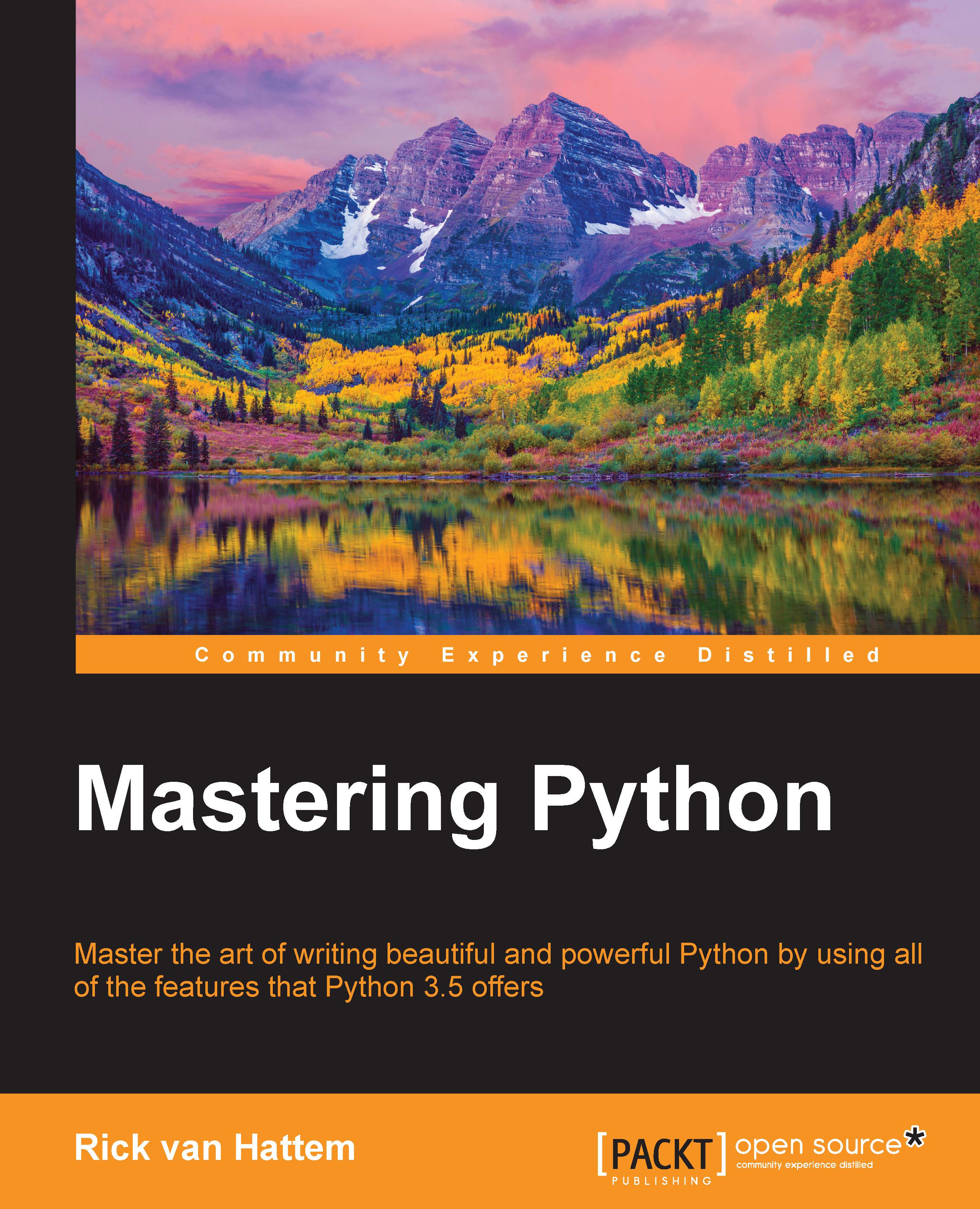-
Book Overview & Buying

-
Table Of Contents

Mastering Python
By :

Mastering Python
By:
Overview of this book
 Free Chapter
Free Chapter
 Sign In
Start Free Trial
Sign In
Start Free Trial

 Free Chapter
Free Chapter
When writing tests, this regularly occurs: you are testing not only your own code but also the interaction with external resources, such as hardware, databases, web hosts, servers, and others. Some of these can be run safely, but certain tests are too slow, too dangerous, or even impossible to run. In those cases, mock objects are your friends; they can be used to fake anything, so you can be certain that your code still returns the expected results without having any variation from external factors.
The unittest.mock library provides two base objects, Mock and MagicMock, to easily mock any external resources. The Mock object is just a general generic mock object and MagicMock is mostly the same, but it has all the magic methods such as __contains__ and __len__ defined. In addition to this, it can make your life even easier. This is because in addition to creating mock objects manually, it is possible to patch objects directly using the patch decorator/context...
